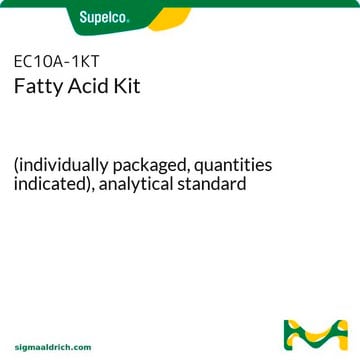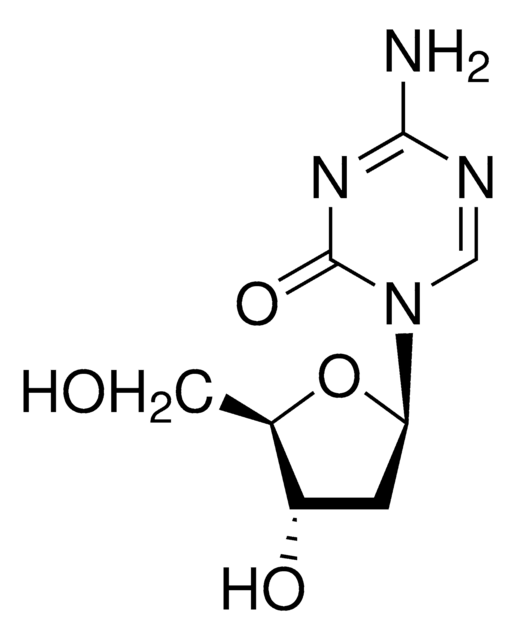D0776
2′-Deoxycytidine hydrochloride
BioReagent, suitable for cell culture
Synonym(s):
1-(2-Deoxy-β-D-ribofuranosyl)cytosine hydrochloride, Cytosine deoxyriboside hydrochloride
About This Item
Recommended Products
biological source
synthetic
Quality Level
product line
BioReagent
assay
≥99% (HPLC)
form
powder
technique(s)
cell culture | mammalian: suitable
solubility
water: 50 mg/mL, clear, colorless
SMILES string
Cl[H].NC1=NC(=O)N(C=C1)[C@H]2C[C@H](O)[C@@H](CO)O2
InChI
1S/C9H13N3O4.ClH/c10-7-1-2-12(9(15)11-7)8-3-5(14)6(4-13)16-8;/h1-2,5-6,8,13-14H,3-4H2,(H2,10,11,15);1H/t5-,6+,8+;/m0./s1
InChI key
LTKCXZGFJFAPLY-OERIEOFYSA-N
Looking for similar products? Visit Product Comparison Guide
Application
- as a deoxyribonucleoside component in the basal medium to study its effects on Bacillus mojavensis′s anaerobic growth
- in the infectivity assay of monocyte-derived macrophages by human immunodeficiency virus 1 (HIV-1)
- in nucleoside supplementation for the synchronization of human retinal pigment epithelial-1 (RPE-1) cells in G1 phase
Storage Class
11 - Combustible Solids
wgk_germany
WGK 3
flash_point_f
Not applicable
flash_point_c
Not applicable
ppe
Eyeshields, Gloves, type N95 (US)
Certificates of Analysis (COA)
Search for Certificates of Analysis (COA) by entering the products Lot/Batch Number. Lot and Batch Numbers can be found on a product’s label following the words ‘Lot’ or ‘Batch’.
Already Own This Product?
Find documentation for the products that you have recently purchased in the Document Library.
Customers Also Viewed
Our team of scientists has experience in all areas of research including Life Science, Material Science, Chemical Synthesis, Chromatography, Analytical and many others.
Contact Technical Service









